Electric cars and SUVs do not contribute all that much to total passenger car sales in India, but they have made inroads. At the moment, a lack of public charging infrastructure and a higher price tag (despite government subsidies) hampers the quicker adoption of EVs. However, buyers now have more than a few options.
When the eVerito arrived on the scene in June 2016, the only other electric car available was the tiny e2o. Nearly five years years on, there are seven all-electric cars on sale, ranging from mass market sedans and SUVs to premium luxury SUVs. Here’s a quick look at every electric car and SUV you can buy in the country, today.
Tata Tigor EV
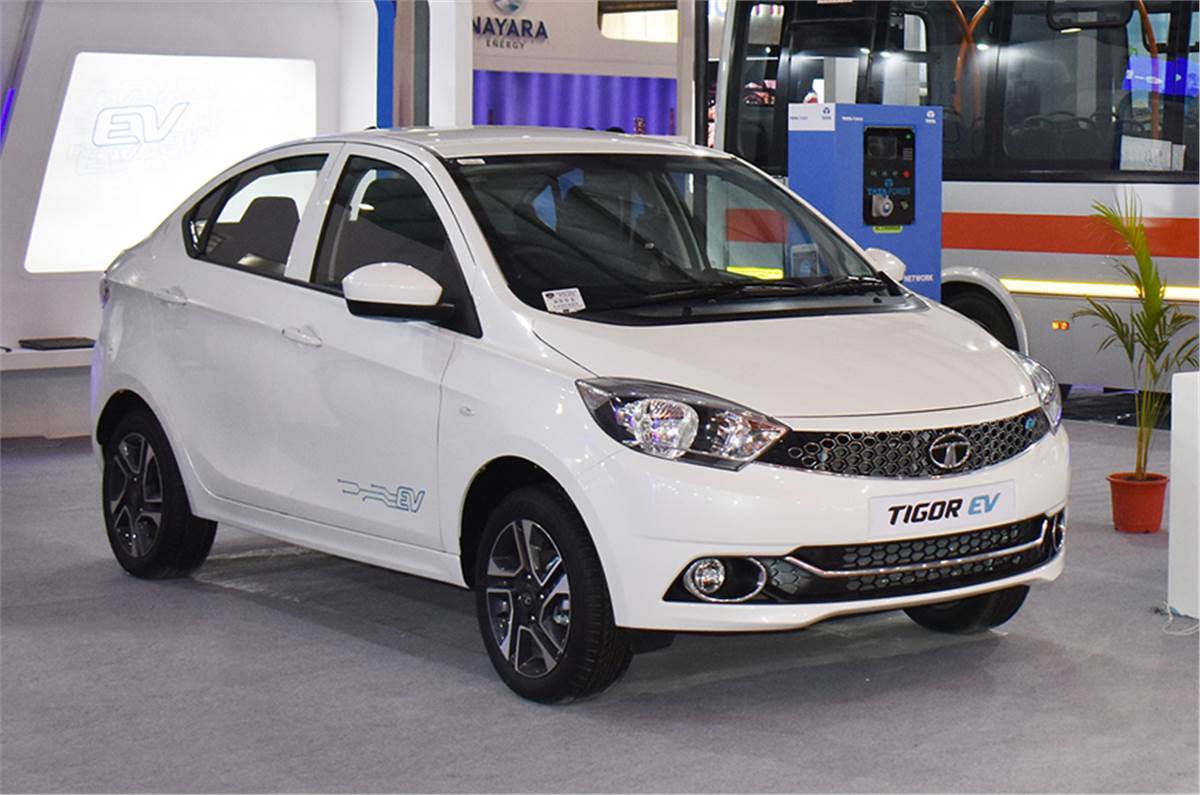
The first all-electric Tata, the Tigor EV, was only available for commercial buyers when it first launched in June 2019. Due to its small 16.2kWh battery and 142km ARAI-rating, the Tata Tigor EV didn’t really alleviate range anxiety associated with all-electric cars. Driving Tata’s electric sedan in traffic is no hassle but it runs out of steam above 50kph; our Tigor EV review showed it took 18.84sec to hit 80kph. In October 2019, Tata introduced an upgraded Tigor EV in three variants and with a larger, 21.5kWh battery pack, which gave it 213km of range on a single charge. The brand also opened order books for individual buyers. A facelift for the electric sedan is likely to arrive soon.
| Tata Tigor EV fact file | |
| Battery capacity | 21.5kWh |
| Power | 41hp |
| Torque | 105Nm |
| Range (ARAI) | 213km |
| Charging time (AC 0-100%/DC fast charging 0-80%) | 11.5 hours/120min (claimed) |
| Price (ex-showroom, Delhi) | Rs 12.77-13.09 lakh |
| Autocar India rating | 6/10 |
Mahindra eVerito
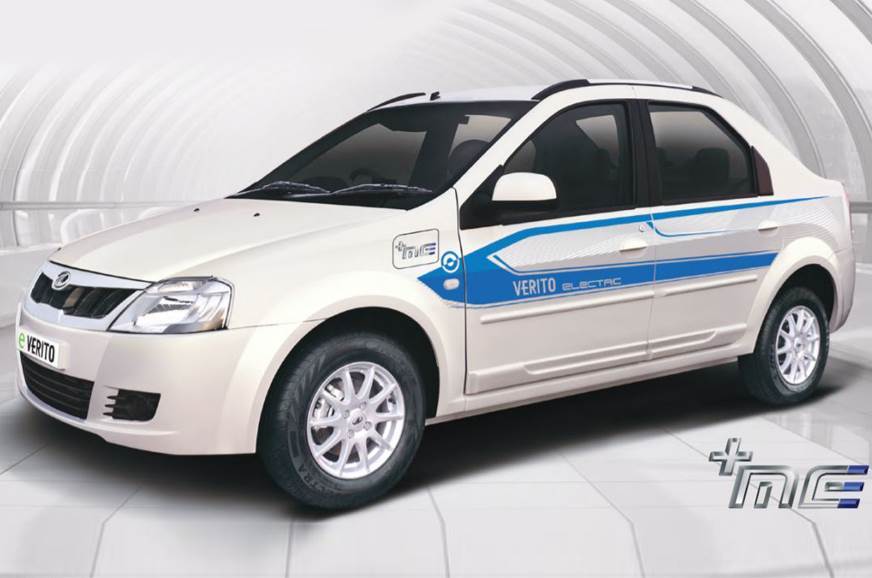
The Mahindra eVerito – the all-electric version of the now-discontinued Verito sedan – has now been on sale for nearly five years. Available in two variants – D2 and D6 – the eVerito has an 18.55kWh battery pack that has an ARAI-rated 140km of range; real-world range, which is usually lower than the ARAI figure, has been a complaint. The weak electric motor also means the eVerito is slow, and struggles to keep up with city traffic. Mahindra’s all-electric sedan is only suitable for short commutes and is expensive for what it is, though the practical, if aging, cabin is a plus point.
| Mahindra eVerito fact file | |
| Battery capacity | 18.55kWh |
| Power | 42hp |
| Torque | 91Nm |
| Range (ARAI) | 140km |
| Charging time (AC 0-100%/DC fast charging 0-80%) | 11.5 hours/90min (claimed) |
| Price (ex-showroom, Delhi) | Rs 12.94-13.20 lakh |
| Autocar India rating | 5/10 |
Tata Nexon EV
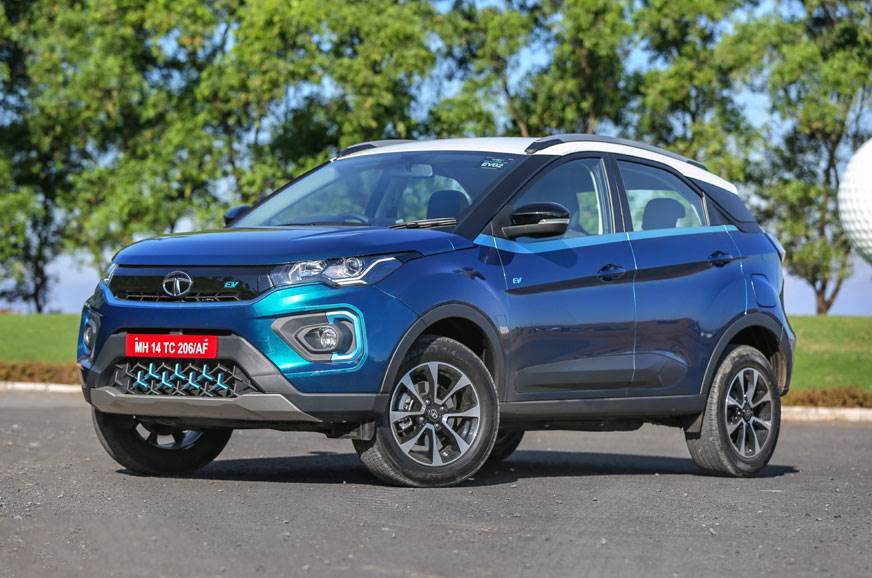
Tata Motors’ second electric car is quite an upgrade from its first. The Tata Nexon EV has modern tech, like a connectivity suite, and a number of goodies, such as a sunroof, and feels like the first electric car from the company that could serve as an alternative to a petrol car. Expect the 30.2kWh battery to last 180-220km in the real world; our review of the electric Tata compact SUV showed it is quick off the line, effortless and decently fun-to-drive too. Nexon EV prices start Rs 2.52 lakh higher than the top-spec Nexon XZA+ DT (O) petrol-automatic and end Rs 4.93 lakh higher, which is a significant premium. While Nexon EV sales crossed the 4,000-unit mark at the beginning of this month, the all-electric SUV has been mired in controversy after complaints about its range. Currently, the delisting of Tata’s electric SUV from the EV subsidies list has been put on hold by the Delhi High Court. For a better understanding of the issue, here’s more on how EV range works.
| Tata Nexon EV fact file | |
| Battery capacity | 30.2kWh |
| Power | 129hp |
| Torque | 245Nm |
| Range (ARAI) | 312km |
| Charging time (AC 10-90%/DC fast charging 0-80%) | 8.5 hours/60min (claimed) |
| Price (ex-showroom, India) | Rs 13.99-16.40 lakh |
| Autocar India rating | 8/10 |
MG ZS EV
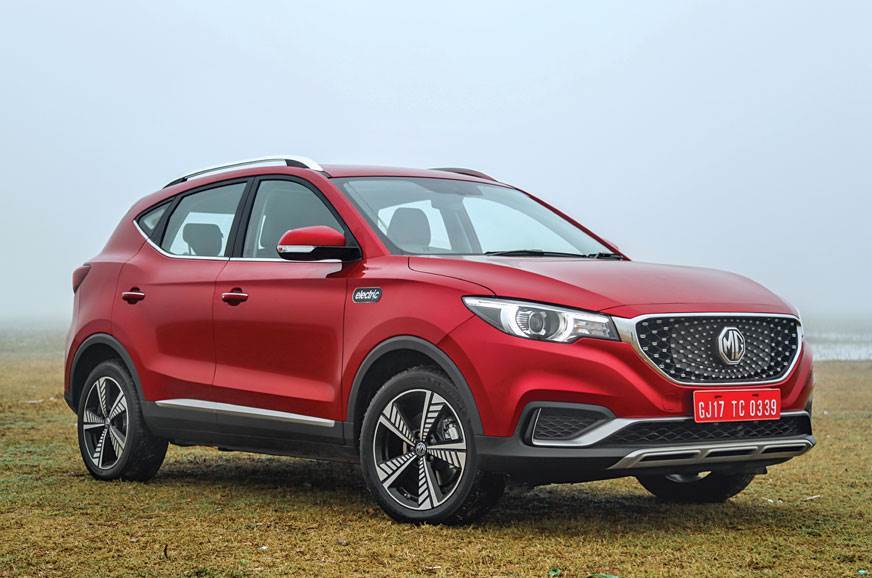
The ZS EV is a direct rival to the Hyundai Kona Electric. It boasts of a longer real-world range from its 44.5kWh battery pack (as our comparison between the ZS EV and Kona Electric showcased), more cabin space and a long list of equipment; there are some features that are missing from a car in this class though. Despite a recent update that increased its ARAI range from 340km to 419km and ground clearance by 16mm, MG ZS EV prices also undercut Hyundai’s EV by a small margin. A standard 5-year warranty pack also helps the all-electric MG SUV’s case. Autocar India has the honour of setting the record for the maximum distance travelled in an EV on one charge in India – it was a 563km-long run in the ZS EV.
| MG ZS EV fact file | |
| Battery capacity | 44.5kWh |
| Power | 143hp |
| Torque | 353Nm |
| Range (ARAI) | 419km |
| Charging time (AC 0-100%/DC fast charging 0-80%) | 16-18 hours/50min (claimed) |
| Price (ex-showroom, India) | Rs 20.99-24.18 lakh |
| Autocar India rating | 8/10 |
Hyundai Kona Electric
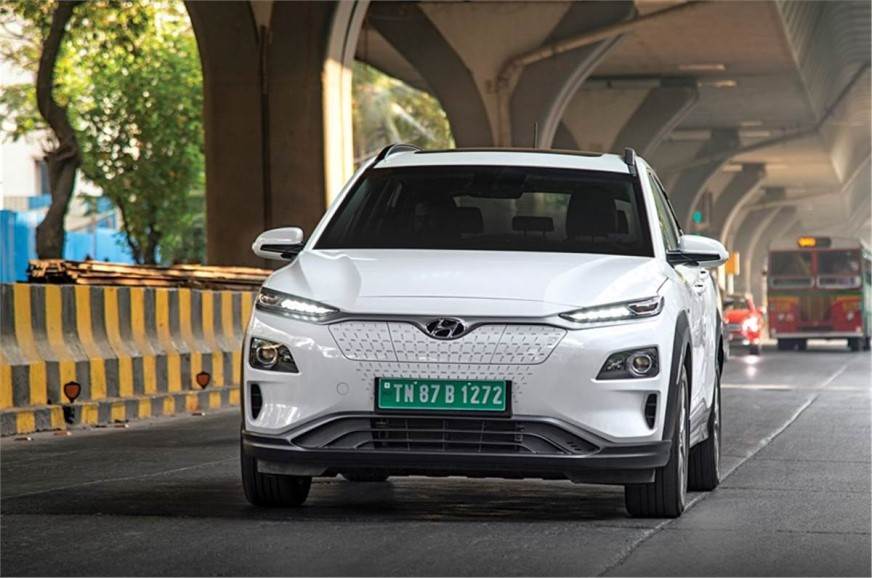
The Hyundai Kona Electric was introduced in July 2019 as a CKD to showcase the Korean brand’s technology in the EV arena. We found out in our Kona Electric road test that it was a peppy performer, a typically well-kitted Hyundai, and that it could go a decent distance on a single charge. However, its interiors are bland and aren’t all that spacious either. Just last year, Hyundai’s variable ‘Wonder Warranty’ pack was made available on the electric SUV. The Kona Electric facelift for international markets was revealed in November last year though there’s no word on when it’ll be brought to India.
| Hyundai Kona Electric fact file | |
| Battery capacity | 39.2kWh |
| Power | 136hp |
| Torque | 395Nm |
| Range (ARAI) | 452km |
| Charging time (AC 0-100%/DC fast charging 0-80%) | 19 hours/Under 60min (claimed) |
| Price (ex-showroom, India) | Rs 23.76-23.95 lakh |
| Autocar India rating | 7/10 |
Mercedes-Benz EQC
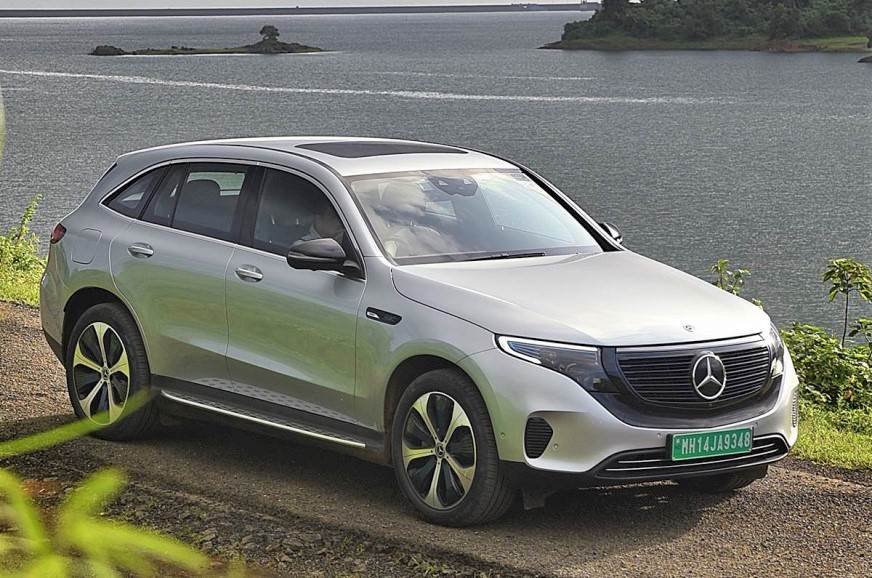
Mercedes-Benz India’s first all-electric model, the EQC is meant to lure traditional luxury SUV buyers. The Mercedes-Benz EQC is refined, has a fun-to-drive aspect and can go about 350km on a single charge; buyers who opt to drive should not have any complaints. It’s luxurious too though it’s not as feature-rich as you’d expect from a car of this price; with a Rs 1.04 core price tag, it costs as much as the larger GLS. The low ground clearance is also an issue, which is something we found out in our EQC India review.
| Mercedes-Benz EQC fact file | |
| Battery capacity | 80kWh |
| Power | 408hp |
| Torque | 760Nm |
| Range (WLTP) | 370-414 km |
| Charging time (AC 0-100%/DC fast charging 10-80%) | 21 hours/About 40min (claimed) |
| Price (ex-showroom, India) | Rs 1.04 crore |
| Autocar India rating | 8/10 |
Jaguar I-Pace
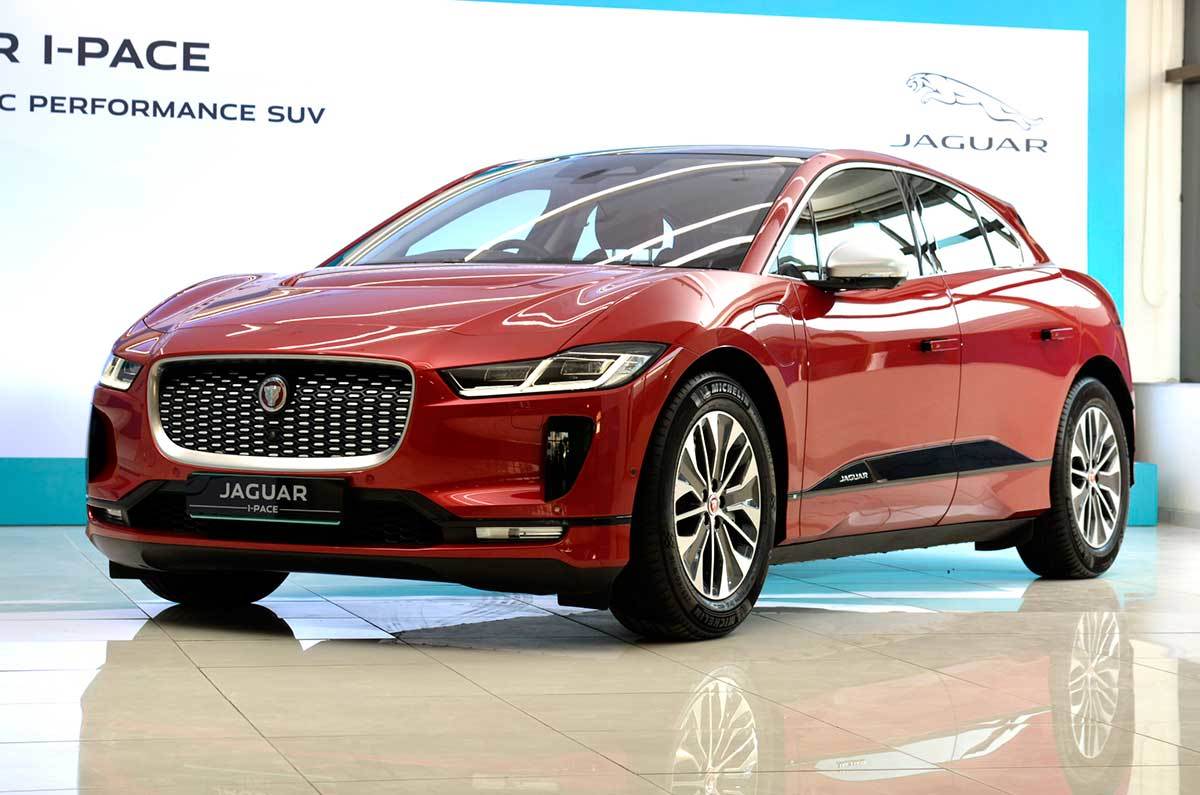
Jaguar’s answer to the Mercedes EQC is typical in many ways – it’s stunning to look at and is a hoot to drive. The I-Pace is easy to live with too, if only we had the infrastructure to support the lifestyle. The Jaguar I-Pace has gone on sale in three trim levels – S, SE and HSE. The Audi e-tron and e-tron Sportback are expected to arrive during the first half of this year to take on both, the I-Pace and the EQC.
| Jaguar I-Pace fact file | |
| Battery capacity | 90kWh |
| Power | 400hp |
| Torque | 696Nm |
| Range (WLTP) | 470km |
| Charging time (AC 0-100%/DC fast charging 0-80%) | 12.9 hours/Under 2 hours (claimed) |
| Price (ex-showroom, India) | Rs 1.06-1.12 crore |
| Autocar India rating | 8/10 |
Prices as on April 22, 2021
Also see:
6 new Mahindra SUVs to launch by end-2021
Bentley to switch to EV-only range by 2030
UK Government to ban sales of new petrol and diesel cars from 2030
Tamil Nadu grants two-year road tax exemption to electric vehicles

